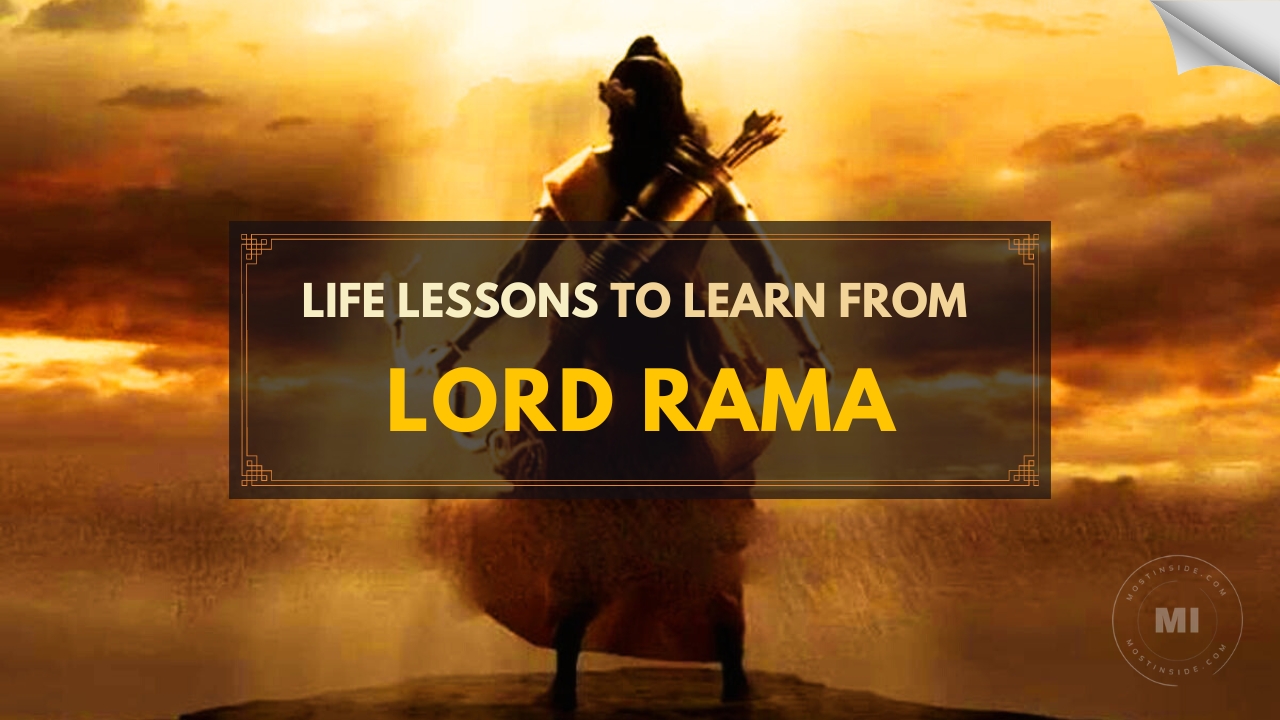8 Life Lessons to Learn From Lord Rama
This post was last updated on January 20th, 2024
Hindu God Vishnu, who is known as the operator of this whole universe, stepped into the world in his seventh avatar as Lord Rama. The great Hindu mythological epic, Ramayana, revolves around Lord Rama’s incarnation, his ideals, loyalty and greatness. Alongside Lord Krishna, Lord Rama too is considered as one of the most important avatars of Lord Vishnu, who came in this world in Treta Yuga.
Born as the eldest son to Dasharatha and Kaushalya, he has been known as Maryada Purushottam Lord Rama or Lord of Virtue. While Lord Vishnu took avatar as a mortal being in form of Lord Rama, his wife Goddess Laxmi too incarnated as Sita, who became Lord Rama’s spouse.
With the principle of following dharma and moral ethics, Lord Rama had to face harsh tests and obstacles due to his own people his entire life and for saving his father’s honour, he even abandoned his empire and right to the throne to serve an exile of fourteen years in forest without questioning. While his wife and brother, Laxmana joined him in spending the fourteen years of exile, Sita was abducted by King of Lanka, Ravana. For searching and getting Sita back, Lord Rama was armed with a soldiers of Vanaras (monkeys), Lord Hanuman and Laxmana and led a fierce battle against Ravana. The war of powerful and magical beings using great weaponry resulted in the destruction of Ravana, and this victory is known as the victory of good over evil. After completing his exile, Lord Rama returned to Ayodhya and was crowned as the emperor and established Rama Rajya, which was known as the period of happiness, prosperity, peace, duty and justice.
The whole Ramayana revolves on how Lord Rama led a common man’s life and yet was an ideal man whom people accepted their God. His courage, self-control, loyalty and values are deeply cherished in the Indian culture and this is why here are 8 life lessons to learn from Lord Rama that will help us to at least become a better human:
1. Honour Your Word

One of the basic but strong messages given by Ramayana and the life of Lord Rama is rendering value to your own word. No matter what price you need to pay, but honouring your word is equivalent to worshipping the God within you. In Ramayana, King Dasharatha sent his eldest son, Lord Rama on exile to honour the promise he gave to his wife Kaikeyi without knowing that she would make such a demand in a bid to pronounce her son Bharath as the next King of Ayodhya. But a man of principles like Lord Rama didn’t question his father and without any second thought, he left the empire and his princely life to live life like an ordinary man for the next 14 years in forests.
2. The Pertinence of Righteousness
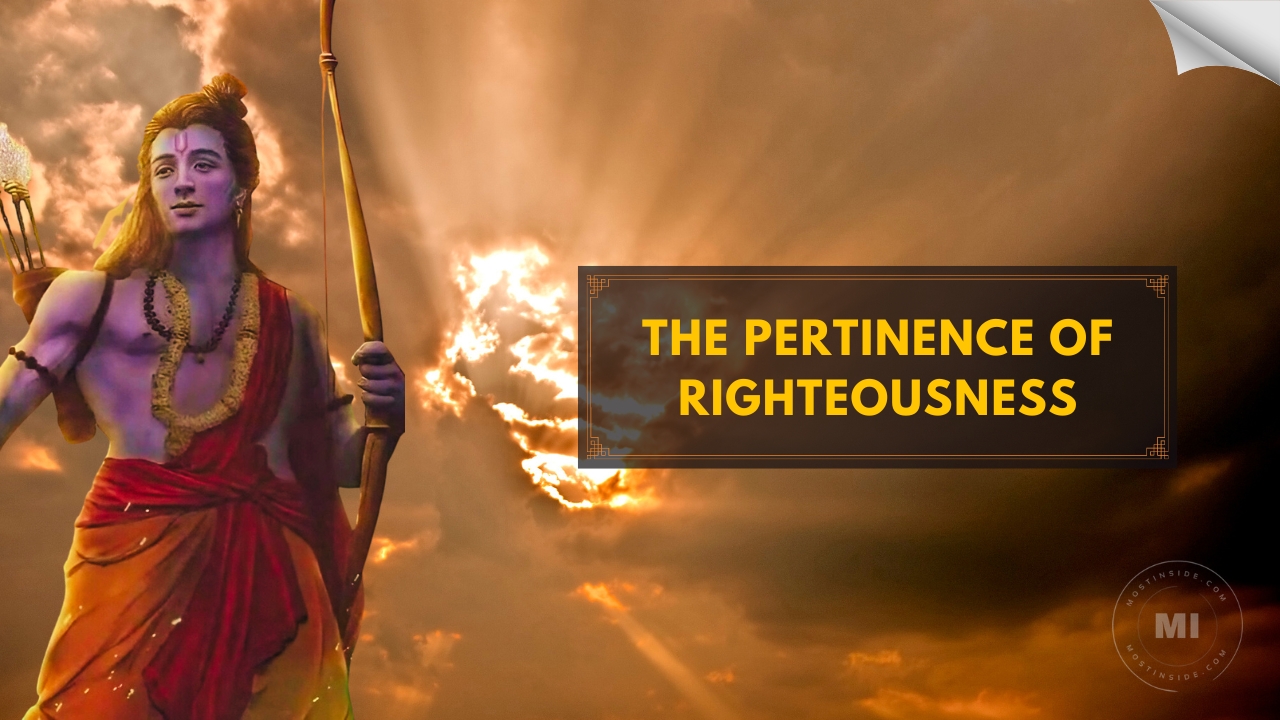
Following the path of dharma, Maryada Purushottam Lord Rama took every step in his life to be truthful and righteous. He left the kingdom of Ayodhya when he was the true successor to the throne just to honour his father’s word. On the quest of one of his subjects, he even asked Sita to go through Agni Pariksha (an ordeal of fire) to prove her sanctity. It is said that Lord Rama was in grief to have asked Sita to undergo this terrible test but to protect her respect and to prove her purity in front of his whole kingdom, he had to take this action, which he thought was right.
3. Be Loyal To Your Spouse

Lord Rama left no stones unturned when it came to rescuing his wife Sita from the clutches of the King of Lanka, Ravana. He was left heartbroken to find Sita abducted by the cruel demon King but his strong will and ardent efforts helped him stage a war against Ravana and take his wife back to home.
But after returning to Ayodhya and accepting the throne from Bharath, he was compelled to tell Sita to leave the kingdom, when one of his subjects questioned about Sita’s loyalty and chastity after living in Ashoka Vatika in Lanka for such long period of time. Despite being a king, Maryada Purushottam Lord Rama could have re-married but his love for Sita was eternal and he could not accept any woman to take her place in his life. He rather chose to live with memories of Sita. It is rightly said that marriages are made in heaven and couples who love each other must remain loyal to one another despite any adverse circumstance or any flaws they have.
4. Adhere To Your Dharma

The Survanshi dynasty of which Lord Rama belonged was known to give birth to kings of great valour. The event when his subjects objected on Sita’s purity, Lord Rama asked her to leave the kingdom while being disheartened, shows that Lord Rama believed in following his dharma of keeping his subjects happy. He sacrificed his marital life for the sake of his subjects. Though many people won’t consider this right but no matter what, we must train our minds to follow good principles that is advantageous for everyone concerned. We must stop letting our mind dwindle and be biased to situations.
5. Be A Gentle & Compassionate Human Being
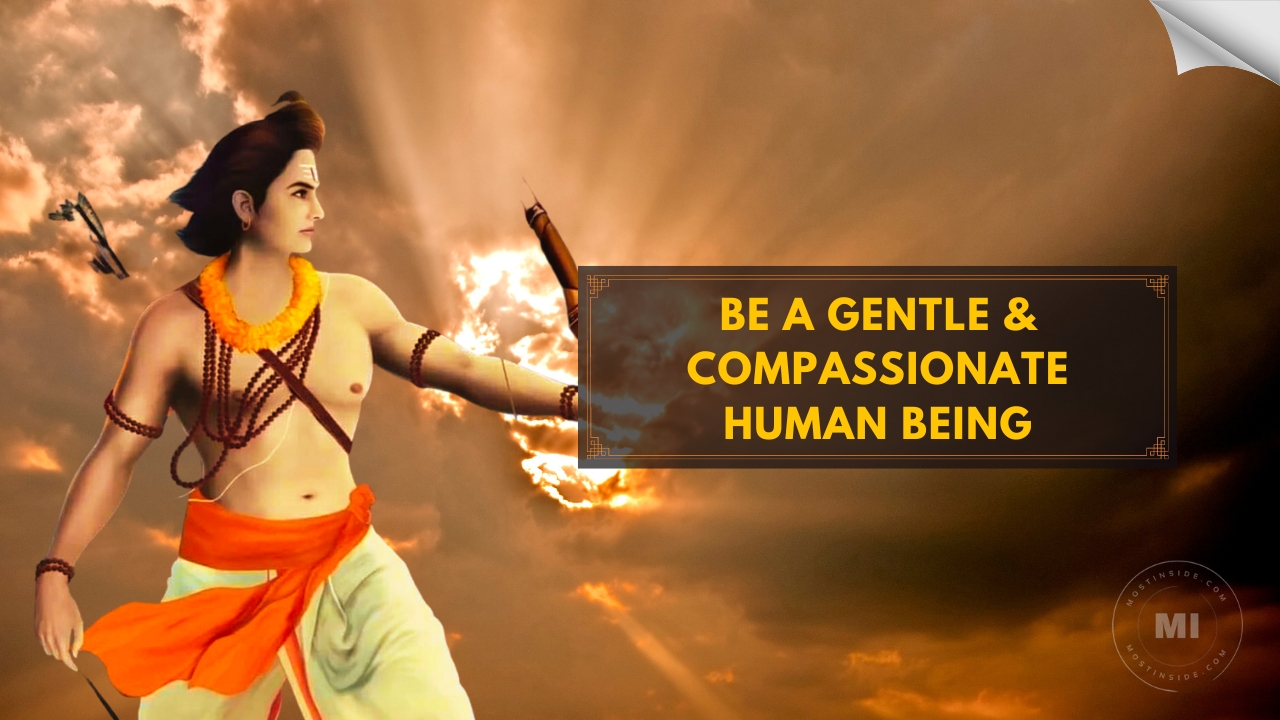
Being in the mortal form, Lord Rama lived a princely life till he grew up but this king of Suryavanshi clan did not hesitate while eating fruits (ber), which were already tasted by a poor old woman named Shabri. In another instance, when his whole Vanarsena was busy building a bridge towards Lanka, he saw a squirrel putting in his best efforts too. To recognise his immense contribution in finding Sita, Lord Rama picked the tiny being from his hands and gently patted it with compassion. In our life, we too must never discriminate between people or judge them by their looks. Also the cruelty we show towards animals is far away from act of compassion.
6. Obstacles Can Be Overcome By Chanting Lord Rama’s Name
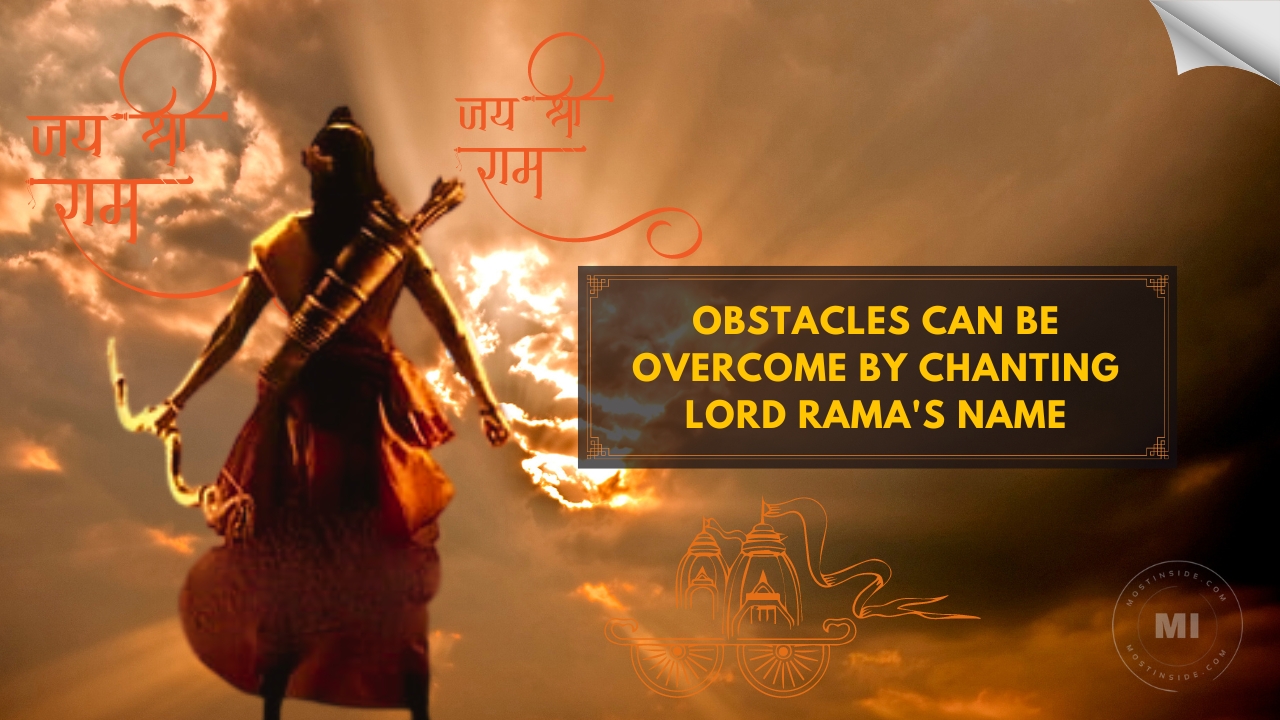
Whether big or small, you will derive strength and guidance to tackle all the obstacles in your life if you chant Lord Rama’s name. This lesson can be learnt from the event when the bridge towards Lanka was made by throwing stones in the ocean that had Lord Rama’s name written on them and they floated in the oceanic water.
Recommended: Inspirational Life Lessons To Learn From Lord Krishna
7. Light The Lamp of Devotional Service To Awaken Lord Rama In Your Heart
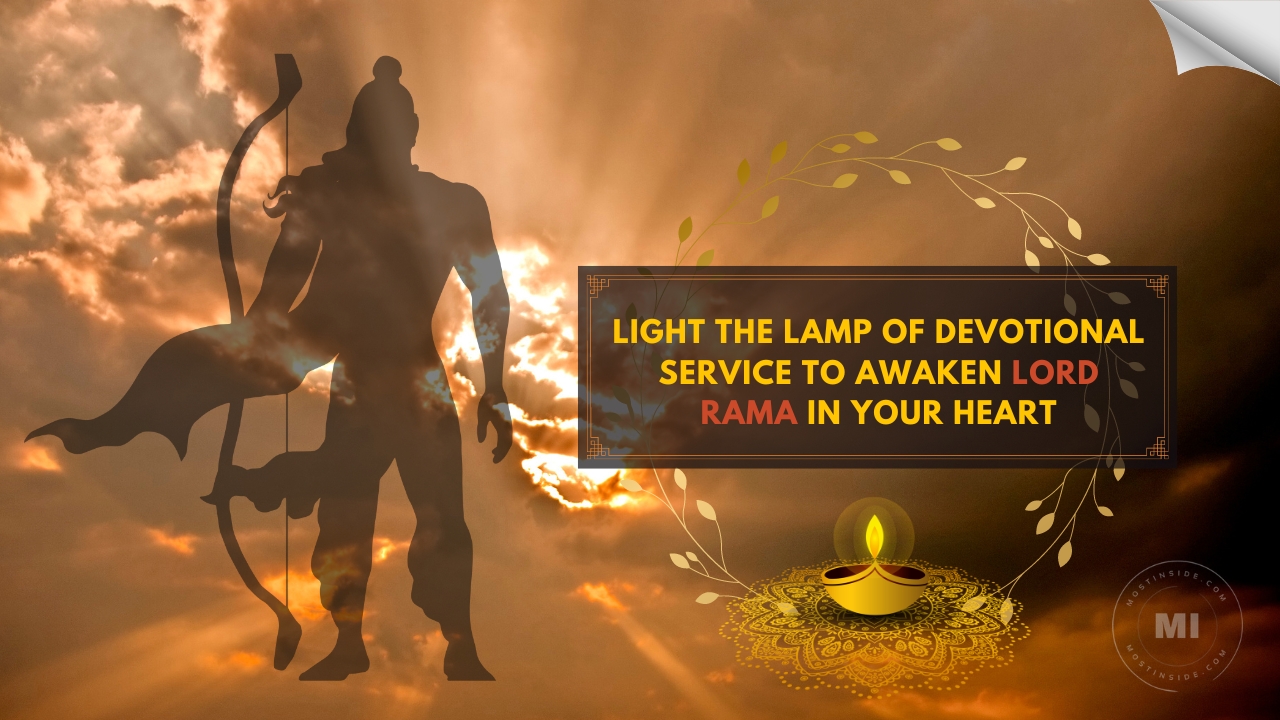
The day when Lord Rama returned back to Ayodhya, the people of this empire welcomed him by lighting lamps everywhere and each year we celebrate Diwali by decorating our house with lamps to celebrate his coming. But Diwali doesn’t mean lighting physical lamps only, it also means igniting the hearts by welcoming God into your soul. You must be ready to sacrifice yourself for the sake of devotion and follow the deeds of Lord Rama. It is only then, that you will be able to awaken Lord Rama in your heart. When Lord Rama will remain in your pious heart, then you will automatically develop the feeling of love for every creation of God and will eventually become a better human being.
8. Kill The Demon Within You
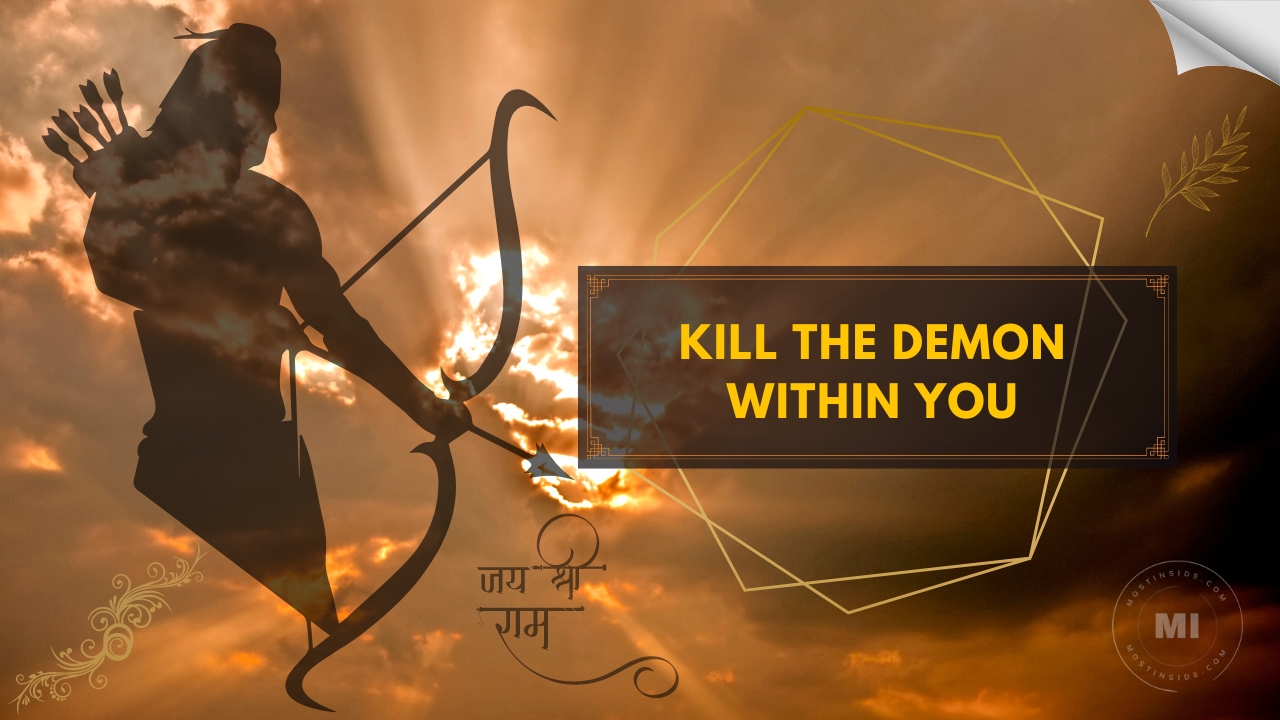
Apart from lighting the lamp of love to awake Lord Rama in your heart, you must ensure that your soul becomes sacred enough by killing the demons within you. The victory of good (Lord Rama) over evil (Ravana) is itself a lesson that before finding and eliminating evils in the society, peep into your soul and see how corrupted it is with retrogressive and sinful acts. It is only through devotion and love for God and his creations that you will be able to repent for your sins and purify your soul.
These are just some of the important lessons that we can learn from the Maryada Purushottam Lord Rama. If we ignore the religion part, then people of every religion/ culture/ caste/ creed can learn these life lessons and implement them in their lives to emerge as a better human being and make this world a better place to live.
Recommended: 9 Important Lessons To Learn From Lord Shiva
Recommended For You
Scientific Proof That Reiki Works
Snehashree Bhat
A young writer who loves to pen words from creative perspective. Passionate internet surfer, a versatile homemaker and a person who finds pleasure in adopting healthier and positive changes in her persona. An enthusiastic feminist who wishes to make serious changes in the stereotypical thought process of the society via the voice of her words.

